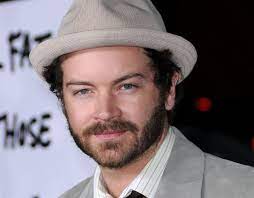LOS ANGELES (AFP): Actor Danny Masterson, a star of the sitcom “That ’70s Show,” was sentenced Thursday to at least 30 years in prison for raping two women at his home two decades ago.
The US actor was convicted in May of drugging and then raping fellow members of the Church of Scientology between 2001 and 2003 at his house in the swanky Hollywood Hills area of Los Angeles.
Imposing a sentence of 15 years-to-life on each rape conviction, to run consecutively, Judge Charlaine Olmedo said she knew Masterson continued to protest his innocence.
“Mr. Masterson, you are not the victim here,” she told him, adding that his actions had taken away another person’s voice and choice.
Masterson, who is married to actress Bijou Phillips, and who has a nine-year-old daughter, was ordered to register as a sex offender for the rest of his life upon his release from prison.
One of Masterson’s victims, identified as Jane Doe 2, told the actor in court: “You relish… hurting women.”
“You lived your life behind a mask as two people. But the real one sits here,” she said, adding the world is “safer” with Masterson in jail.
It was the second rape trial for 47-year-old Masterson, after previous proceedings were declared a mistrial in November when a different jury was unable to reach a unanimous decision.
The jury in the retrial deadlocked on another rape charge against a third woman. That charge was dismissed.
Masterson has been in custody awaiting sentencing since his conviction.
The actor rose to fame with the 1998 launch of retro sitcom “That ’70s Show,” where he played the character of Steven Hyde alongside fellow stars Mila Kunis and Ashton Kutcher.
He co-starred again with Kutcher on Netflix’s “The Ranch,” but was fired in 2017 and written off the show after Los Angeles police confirmed they were investigating multiple rape allegations against the actor.
The three women at the heart of the charges against Masterson were members of the Church of Scientology at the time. Two of them said church officials had discouraged them from contacting law enforcement.
Masterson’s lawyers in closing arguments questioned why the court had heard “so much about Scientology,” and the defense had suggested that bias against the church could have been a motivating factor.
The Church of Scientology criticized the notion that it had tried to silence the complaints.
“The church has no policy prohibiting or discouraging members from reporting criminal conduct of anyone, Scientologists or not, to law enforcement,” a statement said.
“Quite the opposite, church policy explicitly demands Scientologists abide by all laws of the land.”







